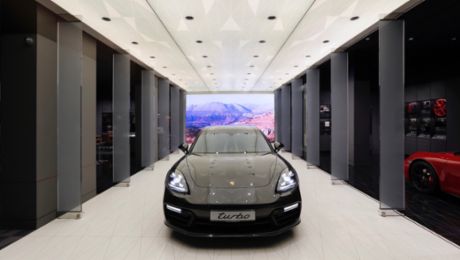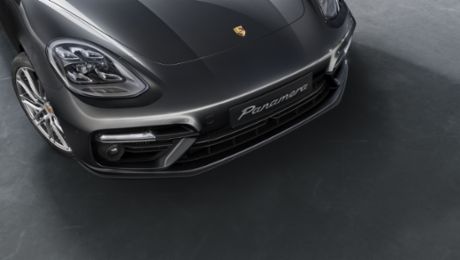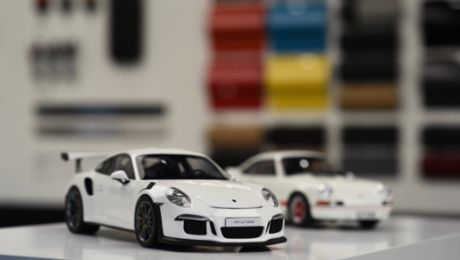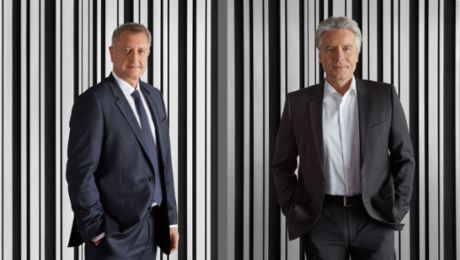It was not a jury but rather consumers themselves who chose Porsche as the best brand in Europe in a representative survey conducted by the GfK market research institute. The survey results led to a "best brands" (Best European Corporate Brand in Europe) award for the sports car manufacturer. Dr. Kjell Gruner, Head of Marketing at Porsche, accepted the award yesterday at a gala event at the Bayerischer Hof hotel in Munich that was attended by some 600 guests from business and industry, the retail trade and the media. Other awards were presented to Nivea as Best Product Brand, WMF as Best Growth Brand and Amazon as Best Highest-Growth E-Commerce Brand.
"best brands – the German brand ranking" was created in 2004 by the Serviceplan Group, GfK, ProSiebenSat.1 Media SE, WirtschaftsWoche magazine and the Markenverband (German Brands Association). Ströer SE became a partner of the awards organization in 2013, and the DIE ZEIT weekly newspaper joined it this year.
What makes the Porsche brand so attractive, and how does the company plan to maintain its outstanding reputation in future? Detlev von Platen, Member of the Executive Board for Sales and Marketing, provides the answers in the following interview.
Porsche achieved a top ranking among the best corporate brands in Europe this year. A company's reputation is shaped not only by rational but also emotional considerations, whereby aspects such as likeability, uniqueness and identification, prestige, productivity and an international presence play a role here. Could you reveal to us the secret to becoming a successful best brand in Europe? What in your opinion is the reason for the Porsche brand's great appeal?
It has to do with things that at first glance appear to be unrelated. Porsche stands for performance and motorsport – but also for everyday usability. Porsche is an exclusive brand, but you can also drive a Porsche to the bakery without having to feel strange. Ultimately, form follows function and the Porsche design is not an end in itself. What I mean to say here is that the combination of these aspects rather than their contradictions is what makes owning a Porsche a dream even for young children. The fascination elicited by sports cars is primarily linked to the Porsche brand. This connection will remain in place as long as we don’t just talk about it but bring it to life for each and every customer.
GfK surveyed 1,000 people each in Germany, the UK, France, Italy and Spain. What types of aspects specific to certain countries need to be taken into account with regards to marketing and brand management? Do you focus on different things in different European countries, or do you employ a standardised brand strategy?
Basically, we speak with one voice, if you will. Porsche is a very strong international brand, which means it's extremely important to have a uniform international brand presentation. Porsche is perceived in the same way by our customers, regardless of whether they visit a Porsche dealership in Canada or southern France. However, we also take regional aspects and cultural differences into account, of course. Some think of Porsche primarily as a driving machine, while others view it as a beautiful design object. Our new Experience Centre in Shanghai, for example, is designed to show customers in China that they will not only look good in a Porsche in a traffic jam but will also be able to enjoy a fascinating sports car whenever they want and have the opportunity to do so.
Which aspects (e.g. engineering expertise, innovative strength or sustainability) still offer reputation-enhancement potential for German brands, both in Germany and on an international scale?
I am convinced that you can't focus on just one single aspect to position and differentiate yourself on the market over the long term. Take Porsche as an example: Obviously, engineering expertise and technology leadership are important, as is demonstrated by the Mission E project for the first all-electric, battery-powered Porsche – which also happens to be a true sports car that boasts ample horsepower, a long range and possibly record-setting charging times as well. We're also the only premium manufacturer to have offered three hybrid variants in three different segments at an early stage of the development. Nevertheless, we would not be able to maintain or improve our market position if it were not for other elements such as a timeless and breath-taking design, excellent customer service and additional attractions such as our Sport Driving School.
People in these increasingly fast-paced days are once again seeking out reliable, long-lasting and sustainable brands, and prefer family-owned businesses. How are you able to constantly reconcile the need for continuity and consistency in brand management with requirements related to innovation and progress? What do you need to pay attention to when bringing innovations to market?
We focus on achieving harmony between tradition and innovation, and this is best exemplified by the 911. The first 911 from more than five decades ago is still recognisable in the latest model generation. But does this mean the new 911 looks like an old car? Of course not – it‘s a sports car that's completely in tune with the times. The approach here is to further develop its distinguishing elements, such as its design, the left-side ignition key, and the six-cylinder flat engine, in an evolutionary manner. Another objective is to integrate state-of-the-art lightweight construction technologies and online services in a way that maintains the perfect overall image. Our innovations are always developed by people who focus strongly on our customers and their requirements.
How important in general is the issue of innovation at the company? What's your focus here, and how do you intend to set trends in future? Will you concentrate more on service innovations rather than product innovations?
We will focus on both. The automotive industry is in the midst of a dramatic transformation. Electrification, digitization and connectivity are the "big three" in our sector, and they are affecting all areas of our operations – from development and procurement to production and sales. Admittedly, we do not follow every new trend. Instead, we focus with confidence on what we do best, which is develop and build fascinating sports cars. However, we are also investing massive amounts of money in those areas where we are seeking to shape the future of Porsche. For example, we're spending one billion euros on the Mission E project alone, with 700 million euros earmarked for our facility in Zuffenhausen, and that’s just for the sector of electrification. As far as connectivity is concerned, we will go live this year with Porsche Connect, which will establish entirely new services on the market. In this sense, we're not talking about an "either/or" situation in terms of product and service innovations; instead we're addressing both.
Consumer, media-consumption and communication behaviours are all changing. What types of brand-management challenges will this lead to over the next few years? Which measures can be used by brands in future to capture the hearts and minds of customers? What role will aspects such as the brand experience and the brand presentation play here?
Have you ever driven a Porsche? If you haven't, then I would recommend first and foremost that you take a test drive with one. Still, the experience is not exclusively depending on the product alone. Ensuring the type of service that corresponds to the brand's high standards is also a firm part of our strategy. Innovative products like the Macan are attracting entirely new target groups, while innovative services play a major role in ensuring that our customers remain loyal and always feel at home. However, that's not enough for young and urban target groups. We also need to reach such potential customers in their everyday lives. To this end, we will not only establish so-called digital city showrooms in large cities but are also utilising new concepts like the international "Brand Pop-ups" to bring the brand to customers. This especially applies to the digital world, where we plan to increase Porsche's presence in the sectors of video games and virtual reality.
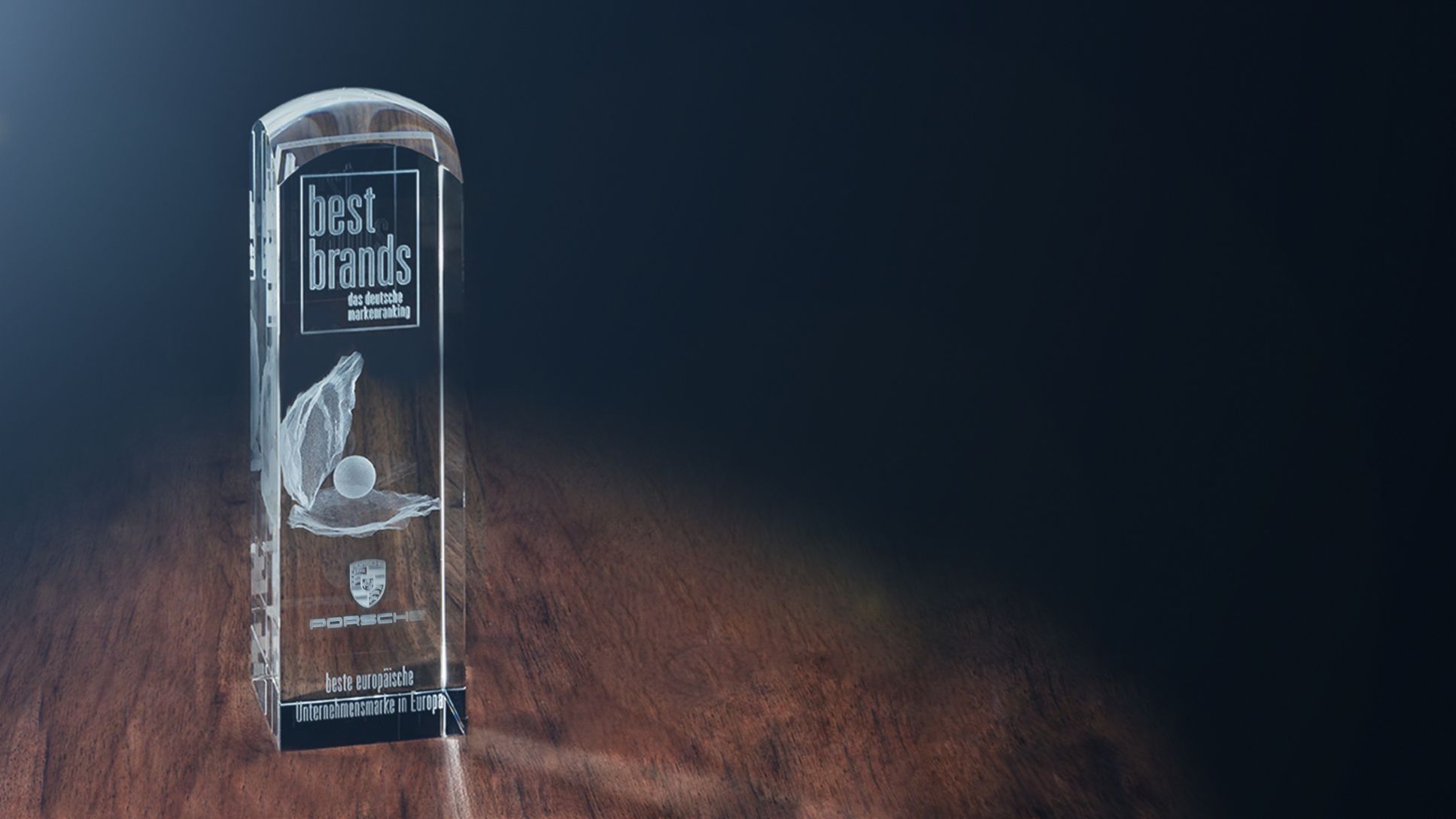
.jpg/jcr:content/v_PlatenNEU__004_%20(1).jpg)
